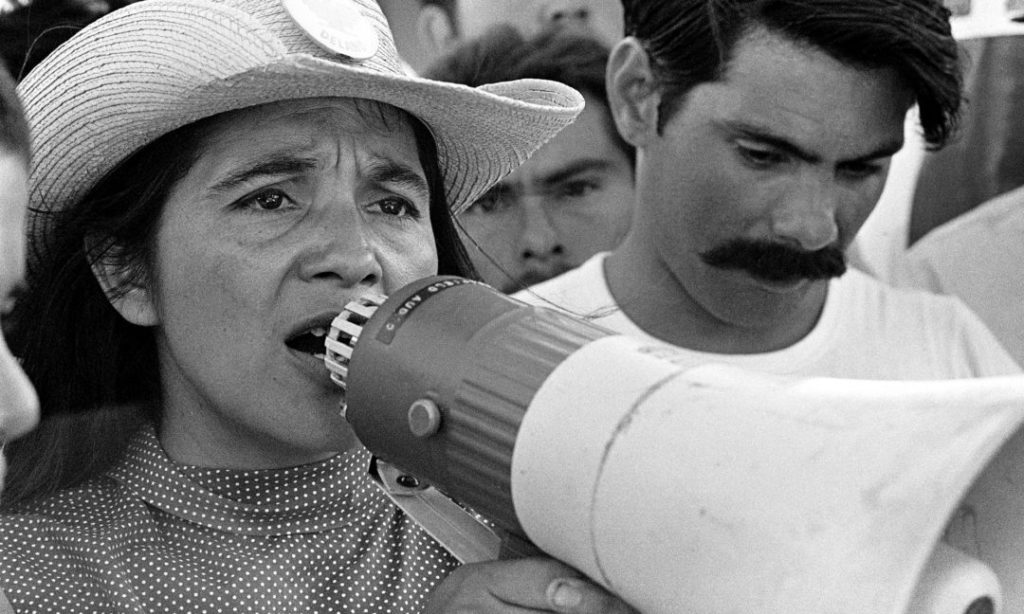Neoliberalism’s Impact on Social Movements

I am slightly hesitant to write about this here because of the reflexive anti-social movement, anti-left commenters that certainly do not make up everyone in this space, but who make up too many. But it’s the space I have so I will do so. Michelle Goldberg led us to this deep dive into the problems with contemporary organizing spaces by Working Families Party leader Maurice Mitchell. It really touches on a lot of things I’ve been concerned about for a long time. The most important of them is the impact of neoliberalism on our politics.
Now, since we are here and in a space where too many commenters like to think that “neoliberalism” is something made up by Bernie supporters, it is worth noting a few things. First, neoliberalism is real and it fundamentally means the privatization of public goods. But neoliberalism is more than just handing Bolivian water services over to a profit-making Bechtel. It’s also the ways in which the deification of the private has infected our society generally. The deification of the individual is not only exceptionally powerful in our society, but it’s now almost unquestioned. It’s had a huge deleterious impact on organizing because it undermines conversations between different people. It turns the idea of solidarity from something we need to do together to something I want you to do to support me without any required reciprocation on my part. It turns our politics into a sleeve tattoo, where we wear our ink for all to see and if someone doesn’t appreciate or recognize or prioritize my particular set of identities, then fuck them. Hard to win this way. It’s true enough in any case that on large parts of the left, especially in the mid 2010s, that neoliberalism was indeed used as a pejorative that meant “anything the Democrats do that I don’t like.” That was wrong and that was annoying. But it doesn’t mean that neoliberalism isn’t somehow real.
Anyway, I want to link to Mitchell’s articulation of this part of his essay.
Neoliberal Identity
Definition
Using one’s identity or personal experience as a justification for a political position. You may hear someone argue, “As a working-class, first-generation American, Southern woman…I say we have to vote no.” What’s implied is that one’s identity is a comprehensive validator of one’s political strategy—that identity is evidence of some intrinsic ideological or strategic legitimacy. Marginalized identity is deployed as a conveyor of a strategic truth that must simply be accepted. Likewise, historically privileged identities are essentialized, flattened, and frequently—for better or worse— dismissed.
Fallacies
To be clear, personal identity and individual experience are important. And while it is true that the “personal is political,” the personal cannot trump strategy nor should it overwhelm the collective interest. Identity is too broad a container to predict one’s politics or the validity of a particular position. There are over 40 million Black folk in the US. Some have great politics, some do not. One’s racial or gender identity, sex, or membership in any marginalized community is, in and of itself, insufficient information to position someone in leadership or mandate that their perspective be adopted.
People with marginal identities, as human beings, suffer all the frailties, inconsistencies, and failings of any other human. Genuflecting to individuals solely based on their socialized identities or personal stories deprives them of the conditions that sharpen arguments, develop skills, and win debates. We infantilize members of historically marginalized or oppressed groups by seeking to placate or pander instead of being in a right relationship, which requires struggle, debate, disagreement, and hard work. This type of false solidarity is a form of charity that weakens the individual and the collective. Finding authentic alignment and solidarity among diverse voices is serious labor. After all, “steel sharpens steel.”
Neoliberal identity politics strips from identity politics a focus on collective power or a political project and demand. What’s left is a narrow tool used as a personal cudgel or, as Barbara Smith has said, “It’s like they’ve taken the identity and left the politics on the floor.” It should be noted that we have already seen this tactic used against us on the Left and the Right in the fight for racial and economic justice. Identity in this context reaffirms the individualistic principles of neoliberalism instead of challenging them.
Even outside of the rest of the essay, there is a lot to think about here. I hope we can have a productive conversation around these issues and the entire essay here in the comments.


